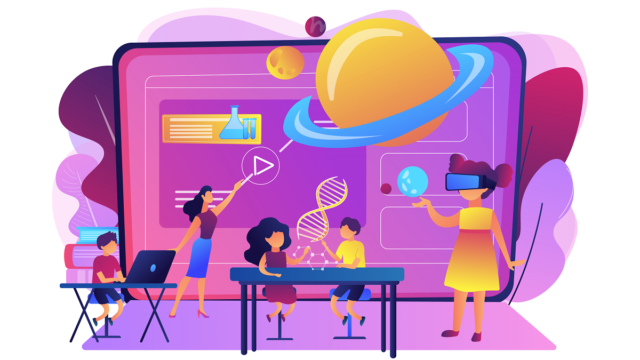Exploring the Role of EdTech Startups


Within the constantly changing world of educational technology, one trend has risen as a significant instrument for involvement and education, that is Gamification. There has been a significant change that gamified educational experiences can bring about in terms of students’ learning, achievement and the final results of their education. It serves as a potent tool for transforming the learning experience. One of the key benefits of gamification in education is that it can make learning more interactive and fun. It involves infusing game-like elements into non-gaming learning settings.
Gamification isn’t just a passing trend. It’s a revolutionary force that’s reshaping how students interact with educational content. By adding competition, rewards and challenges, gamification enhances the interactive aspect of learning. It turns the learning journey into something interesting, going beyond traditional approaches.
The pandemic catalyzed the idea of gamification by encouraging hybrid learning environments. The main point of gamification in educational technology was to introduce a layout or interface more like a video game to promote participatory learning.
From the time that gamification has become a buzzword for the industry, a study from BlueWeave Consulting has found that the global education gamification market was worth USD 697.26 million in 2020 and is further projected to reach USD 4144.97 million by 2027. But still, EdTech start-ups and existing brands are looking for some fresh perspective on how gamification could redefine the future of learning.
The era of traditional classroom has been modified to more modern and tech-enabled setup. Nowadays, emerging technology are at the forefront, transforming both teaching and learning methodology. Now, with the growing use of AI and innovative tools within our schools and education systems, the proven value of play and gamification in an educational context can be explored and augmented in unprecedented ways.
In educational settings, gamification serves multiple purposes:
Enhancing Engagement: Gamified elements capture students’ interest and sustain their attention throughout lessons, making learning more enjoyable and memorable.
Fostering Motivation: Intrinsic rewards and immediate feedback mechanisms inherent in gamification motivate students to strive for continuous improvement and mastery.
Promoting Learning Effectiveness: Gamified activities encourage problem-solving, critical thinking, collaboration, and decision-making skills, which are essential for academic and real-world success.
The Role of Gamification in Transforming Learning
The impact of gamification on education extends beyond mere engagement metrics. Students in gamified classrooms often demonstrate higher levels of knowledge retention, application, and conceptual understanding compared to traditional instructional methods. It also promotes active learning by encouraging students to explore, experiment, and collaborate with peers, fostering a supportive and inclusive learning community. Additionally, adaptive gamification systems can adjust learning content and pacing based on individual student progress, catering to diverse learning needs and preferences.
Hence, EdTech companies and innovators are at the forefront of leveraging gamification to revolutionize educational practices and experiences. By integrating advanced technologies such as artificial intelligence (AI), augmented reality (AR), and virtual reality (VR), companies are creating sophisticated and personalized gamified learning solutions.
Looking forward, the future of gamification in education is promising, driven by ongoing advancements in technology, pedagogy, and educational research. I envision that AI-driven gamification systems will continue to evolve, offering increasingly personalized and responsive learning experiences. Immersive technologies will enhance gamified learning environments, providing students with interactive and realistic simulations to deepen their understanding and skills. Thirdly, Collaborative efforts among educators, researchers, policymakers, and EdTech developers will promote the widespread adoption and refinement of gamification in education worldwide.
Therefore, gamification of education content is a progressive step towards improved and results-oriented understanding. Thus, I’m hopeful about the significant changes gamification can bring to how students interact, stay motivated and achieve in their studies. By tapping into what naturally drives people to play and merging that with our learning goals, we can build engaging and welcoming educational spaces that help students succeed in today’s digital world and in the future. Together, by being innovative, working together and dedicated to excellence in education, we can fully realize the power of gamification in redefining education globally.
 By Mr Dinesh Kumar Poobalan, CEO & CTO, Greatify
By Mr Dinesh Kumar Poobalan, CEO & CTO, Greatify
A distinguished entrepreneur, educationist, and visionary, Mr. Dinesh Kumar Poobalan is the founder and CEO of Greatify, a technology-enabled edtech company. With over two decades of experience in technology and educational reform, Mr. Poobalan has left an indelible mark, reshaping and disrupting how educational institutions harness technology for management, learning, and assessment.
Source link



